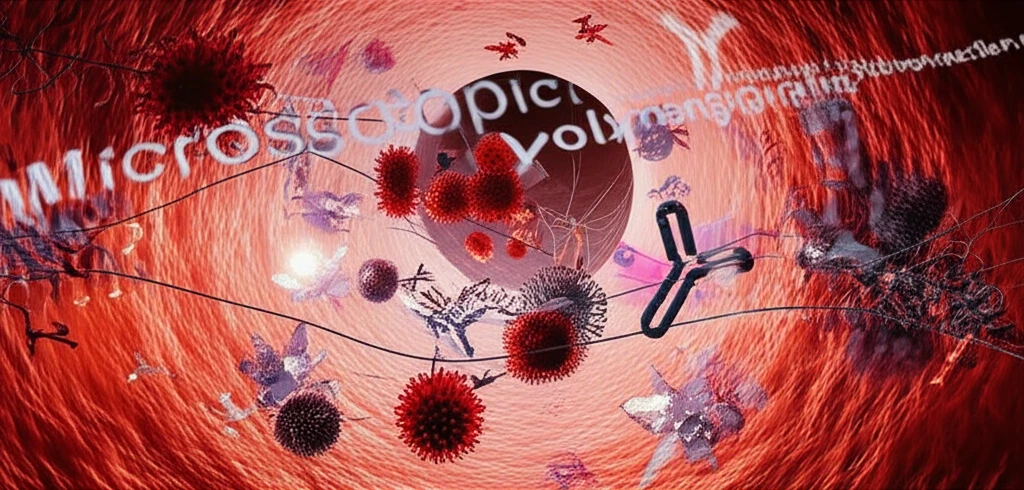
Unraveling the Mystery: How a Rare Immune Reaction Mimics a Serious Kidney Condition
"A Deep Dive into Microscopic Polyangiitis, Hantaan Virus Antibodies, and the Intriguing World of Cross-Reactions"
In the intricate world of medicine, sometimes our bodies' defenses can create unexpected twists. This is particularly true within the immune system, where the lines between friend and foe can blur. This article delves into a captivating medical case that highlights this complexity: a 71-year-old woman whose immune system produced antibodies that surprisingly mimicked the symptoms of a severe kidney condition.
The case revolves around a rare form of vasculitis called Microscopic Polyangiitis (MPA), often characterized by an immune system gone awry. However, what makes this case unique is the presence of antibodies specific to the Hantaan virus, a virus typically associated with Hemorrhagic Fever with Renal Syndrome (HFRS). This unexpected combination of events highlights the delicate balance within the human body and the diagnostic challenges that arise when cross-reactions occur.
Join us as we examine the details of this intriguing case, providing insights into the underlying mechanisms and implications of this complex medical phenomenon. We will explore how cross-reactions can lead to diagnostic dilemmas and shed light on the importance of accurate assessments for better patient care.
The Enigmatic World of Microscopic Polyangiitis (MPA) and its Immune Complexities

Microscopic Polyangiitis (MPA) is a condition in which the body's immune system mistakenly attacks small blood vessels. This can lead to inflammation and damage in various organs, including the kidneys. MPA often presents with symptoms like fatigue, fever, and weight loss, and its diagnosis involves detecting specific antibodies in the blood, such as anti-neutrophil cytoplasmic antibodies (ANCAs).
- Inflammation: MPA is characterized by inflammation of the small blood vessels, leading to damage in multiple organs.
- Autoantibodies: The presence of autoantibodies, such as ANCAs, is a hallmark of MPA.
- Varied Symptoms: Symptoms of MPA can be non-specific, and can include fatigue, fever, and weight loss.
A Path Forward
This case serves as a reminder of the complexity of the immune system and the importance of comprehensive diagnostic approaches. As medical science advances, a better understanding of these complex interactions will lead to more accurate diagnoses, better treatment strategies, and improved outcomes for those affected by these intricate medical puzzles.
